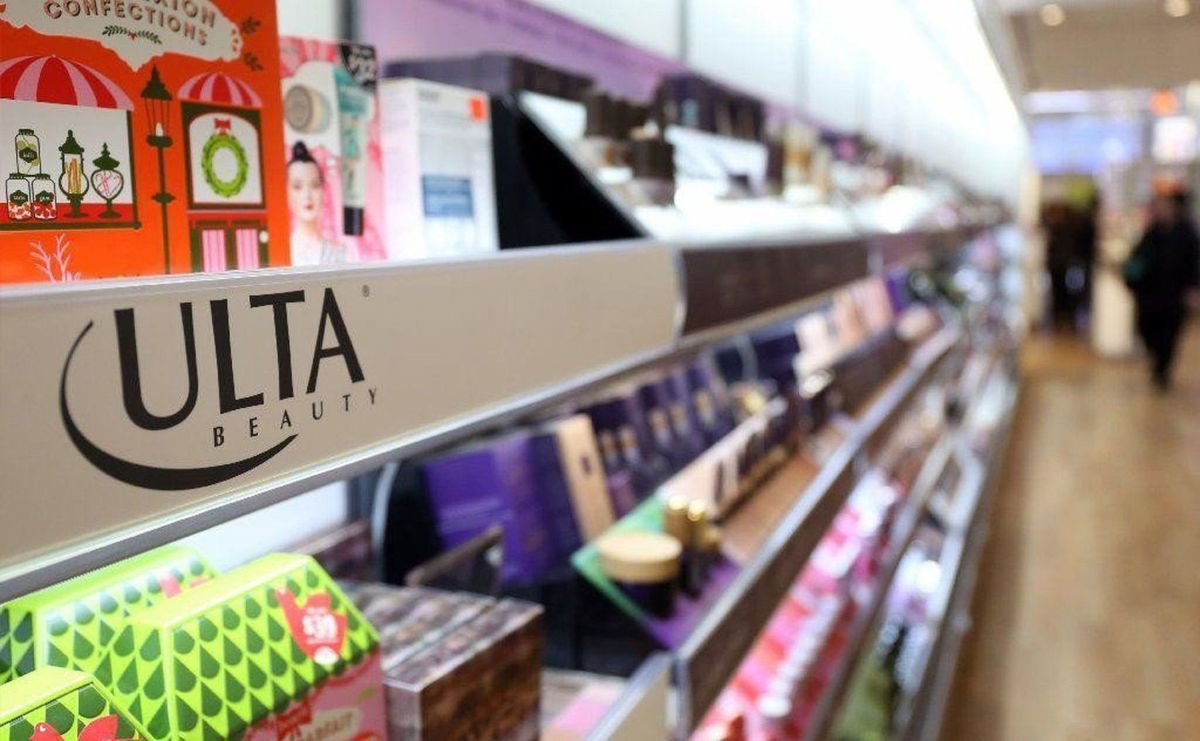
While some sectors of the economy seem to have hit something of a stalemate, like the auto and housing industry, others are quietly humming along.
In fact, fastest growing sectors in retail today is the beauty corner, which has expanded sharply in recent years.
Related: Jeff Bezos makes a major 'emotional' decision
In 2018, the whole of the beauty industry was valued around $508 billion. Now, in 2023, and the industry is estimated at $579 billion, up 14% in just five years.
Not many other corners of the retail economy can say that, and in fact several sectors have floundered in recent years given the difficulties that Covid and subsequent supply chain issues presented.
The fact of the matter is that beauty is relatively impenetrable from growth inhibitors. Largely propelled by trends seen on social media and other virtual forms of entertainment, beauty hardly needs a heavy brick and mortar presence to supercharge its growth prospects.
But in Ulta Beauty's ULTA case, it doesn't hurt.
Ulta seems unstoppable
In August, Ulta's Q2 earnings defied analyst expectations, reporting a 10.13% revenue boost year-over-year and a 5.61% increase in earnings-per-share.
"All major categories delivered comp growth for the quarter, supported by strong engagement with the overall beauty category, compelling product newness and innovation, and successful execution of cross-category promotional events, including our reimagined Big Summer Beauty Sale," CEO Dave Kimbell said in the earnings call.
Incredibly, comparable store sales increased by 8% during the quarter, while other retailers complained of inventory shrink and dwindling margins.
The enthusiasm – and subsequent success that drives Ulta is multi-pronged, but it can be distilled into one key ingredient, says its CMO Michelle Crossan-Matos.
"What we’re seeing in the beauty-care industry versus other industries is that there’s a high desire to keep spending, there’s a high desire to spend against innovation. And innovation comes at different price points and different access points to the category," Crossan-Matos told the Wall Street Journal.
And when customers get choosey about their price points, Ulta doesn't lose out, as many other premium retailers might. The store is divided almost perfectly in half: one side offers luxury labels (and the accompanying high prices associated with them), while the other offers more budget-friendly finds.
"Consumers often trade around so they can find that innovation at the price point that they’re looking for, mostly because beauty care is where you can express yourself and experiment. So people thoroughly enjoy perhaps buying the same innovation with different brands, a different innovation to see which one really works for them."
So while LVMH LVMHF -owned Sephora might lose a few customers as they batten their wallets for an ensuing budget crackdown, Ulta is largely insulated by dour market factors.
But that doesn't tell the whole story. Plenty of big box retailers have since entered the beauty brick-and-mortar game. Many Targets TGT and Walmarts WMT have brightly lit beauty corners that sprawl for aisles (thanks to a new partnership, some Targets even have their very own Ultas in store), and drugstores have carried popular brands like L'Oreal LRLCF and Maybelline for years.
Ulta has a huge membership program
Ulta shines because it captured beauty enthusiasm early. Its hook is its extensive membership program, complete with a database of "42 million loyal members," as Crossan-Matos puts it.
"There are not many companies that can claim that," she says.
Right she is. The biggest competitor to Ulta's membership program is Sephora's Beauty Insider community, which boasts approximately 3 million members. Considering Sephora's large international footprint, that pales in comparison to Ulta.
And Ulta's membership perks only make the prospect more compelling. The more a customer shops at the store, the more points she or he accumulates, which can be put toward future purchases as Ulta Rewards.
Sephora recently started offering a similar perk for savings, but it came only within the past couple of years, long after its legacy program began. Ulta, conversely, has gotten a head start and has been using it cleverly.
"We know that our active loyalty members have a propensity to buy certain brands and certain categories. We have brand partners that want to target those guests. So we build audiences that allow brand partners to target certain guests that are more relevant for those brands," Crossan-Matos explains.
"So for us, because we have our own dot-com and our app, we can buy media that is on- and off-site, that is laser-targeting our guests that love their brands."







